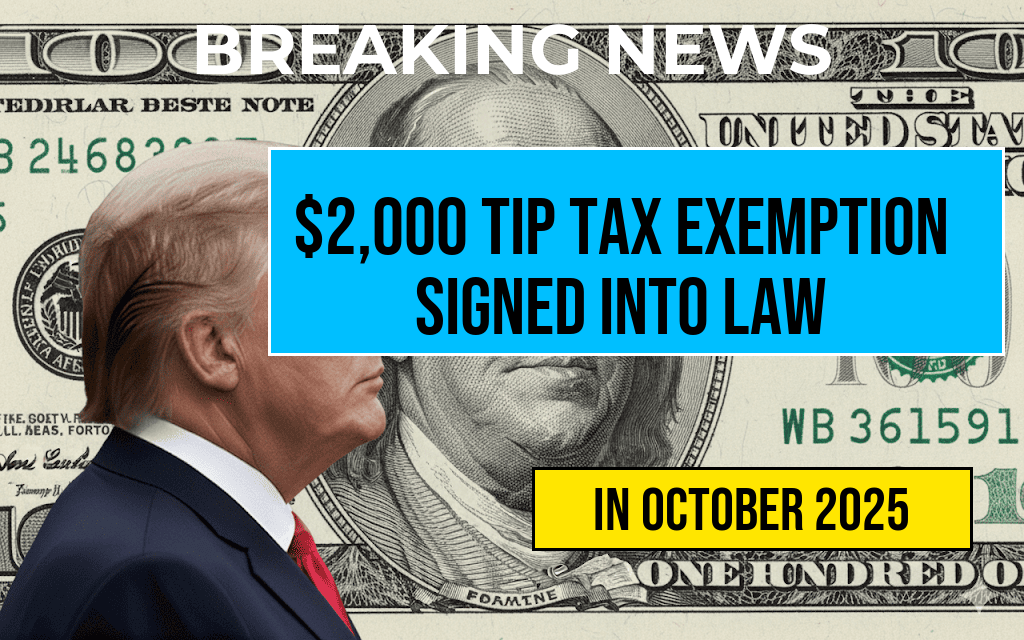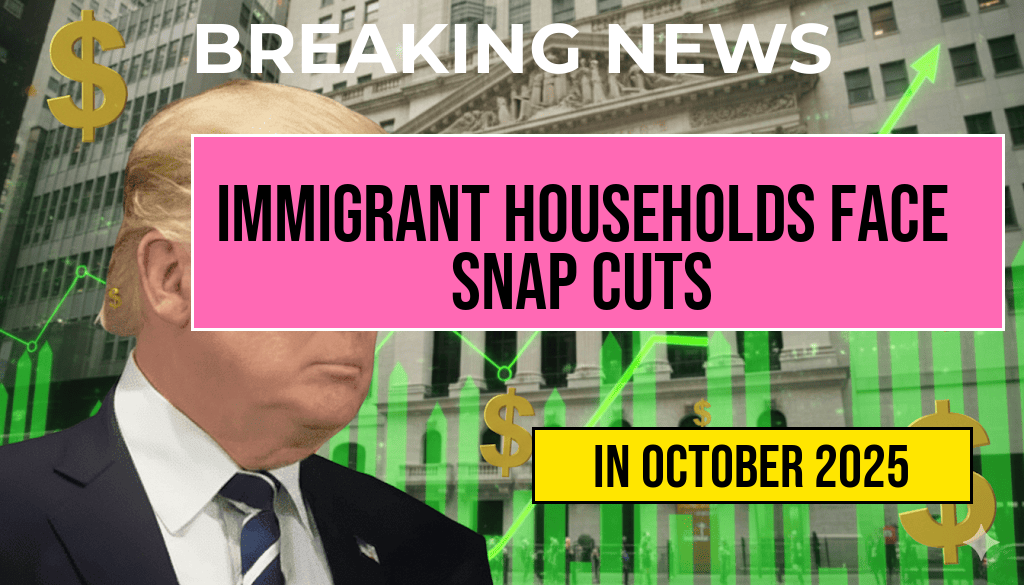Legislation establishing a $2,000 tip exemption from federal income tax has officially been signed into law, marking a significant shift in how gratuities are taxed for service workers. The new bill, aimed at easing financial burdens on hospitality employees, was approved by Congress after extensive debate and is expected to reshape the landscape of tipping practices nationwide. Under the law, tips received up to $2,000 annually will no longer be subject to federal income tax, providing substantial relief for workers relying heavily on gratuities. This change is anticipated to influence employer reporting requirements, adjust payroll procedures, and spark discussions across the hospitality industry about compensation structures and tax compliance. As the law takes effect, workers, employers, and tax professionals are preparing for a period of adjustment with potential long-term impacts on earnings and tax revenue collection.
Understanding the New Tip Exemption Law
Key Provisions and Scope
| Aspect | Details |
|---|---|
| Exemption Amount | Tips up to $2,000 per year are tax-free |
| Effective Date | Legislation signed into law on October 15, 2023; effective immediately |
| Applicability | All service industry workers receiving tips, including restaurant staff, bartenders, and hotel concierges |
| Reporting Requirements | Employers must continue to report tips over $20 per month but are relieved from withholding taxes on tips up to $2,000 |
Rationale Behind the Legislation
The bill’s architects argue that the measure provides fairer treatment for service workers, many of whom depend heavily on gratuities that are often unpredictable and subject to economic fluctuations. Advocates contend that the exemption reduces the tax burden on low- and middle-income employees, potentially increasing disposable income and morale within the hospitality sector. Critics, however, raise concerns about potential revenue loss for the federal government and increased complexity in tax compliance. The legislation also aims to align federal tax policies with industry practices, where tip-sharing and cash gratuities are common, especially amid ongoing discussions about fair wages and labor rights in the gig economy.
Industry and Economic Implications
Impact on Service Workers and Employers
- Increased Take-Home Pay: Workers could see an immediate boost in earnings, particularly those earning tips close to or just above the $2,000 threshold.
- Tax Filing Adjustments: Employees will need to accurately track their tips to ensure proper reporting, especially since tips over $20 monthly are still taxable.
- Employer Reporting Changes: Businesses will need to adapt payroll systems to reflect the exemption, potentially reducing administrative burdens related to withholding taxes on qualifying tips.
Potential Challenges and Concerns
- Tax Evasion Risks: With a higher exemption threshold, some worry about increased opportunities for underreporting tips or tax evasion.
- Revenue Impact: The federal government estimates that the exemption could reduce tip-related tax revenue by hundreds of millions annually, prompting debates on fiscal sustainability.
- Equity and Fairness: Critics argue that the exemption might disproportionately benefit higher-earning workers, while low-income employees may see limited effect due to the variability of tips.
Legal and Regulatory Context
Comparison with Existing Tax Laws
The new legislation builds upon existing federal rules that require service workers to report tips exceeding $20 monthly. Traditionally, tips are subject to income tax and must be reported, with employers responsible for withholding payroll taxes on amounts over the threshold. The current federal guidelines have aimed to ensure transparency but have often placed administrative burdens on businesses and employees alike.
Potential for State-Level Adjustments
States may adopt similar or more generous exemptions based on the federal law, potentially leading to a patchwork of rules across jurisdictions. Some states, such as California and New York, have their own regulations concerning tip reporting and taxation, which could be affected by the new federal exemption. Industry groups are urging states to consider harmonizing policies to prevent confusion and compliance issues.
Looking Ahead
As the $2,000 tip exemption takes effect, stakeholders from across the hospitality and tax sectors are watching closely to assess its real-world impact. Employers are expected to update payroll and reporting systems, while workers are encouraged to keep detailed records of their tips. Tax professionals will play a vital role in guiding clients through new compliance requirements and maximizing benefits. The law also raises broader questions about wage structures and the future of tipping, prompting ongoing discussions about fair compensation models in service industries. For more details on federal tax policies, visit the IRS official website.
Frequently Asked Questions
What is the main purpose of the new legislation regarding the two thousand dollar tip tax exemption?
The legislation aims to provide a tax exemption for tips received by employees, allowing them to keep more of their tips without facing additional tax obligations, thereby reducing tax burdens on workers in the service industry.
Who is affected by the two thousand dollar tip tax exemption law?
The law primarily affects service industry employees such as waitstaff, bartenders, and delivery personnel who regularly receive tips. Employers and tax professionals should also be aware of the new tax reporting requirements and exemptions.
When does the two thousand dollar tip tax exemption law take effect?
The legislation was signed into law recently and is expected to take effect immediately or within a specified timeframe. It is important for workers and employers to stay informed about the exact implementation date to ensure compliance.
How will this legislation impact the tax obligations of service workers?
The law will reduce the taxable income for service workers by exempting tips up to two thousand dollars, which means they will pay less in taxes on their tip income, potentially increasing their take-home pay.
Are there any reporting requirements for tips under this new law?
Yes, employees and employers may still need to report tips accurately to comply with tax regulations. The legislation may include specific guidelines and thresholds for reporting tip income, so it is advisable to consult with a tax professional for detailed compliance.






